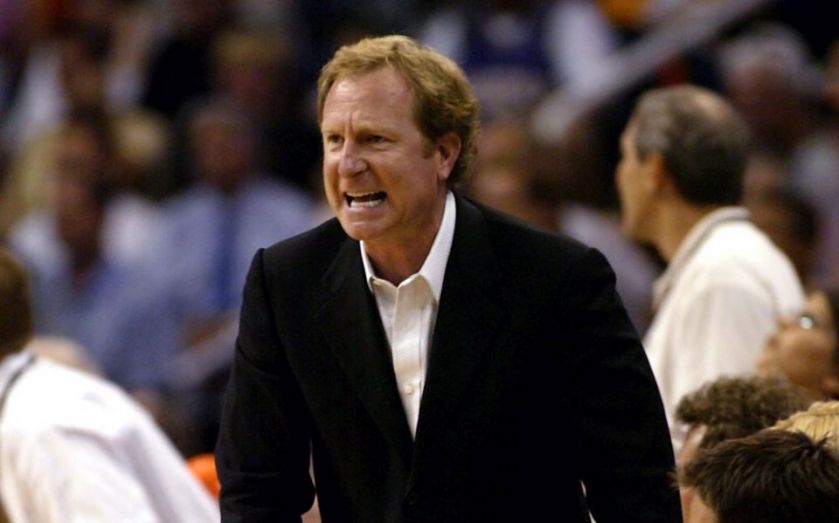Rangers: A Phoenix Suns fan explains why Robert Sarver is “better than most” sports team owners

Robert Sarver, the American financier and owner of the Phoenix Suns basketball franchise, is firmly set on a takeover of Rangers.
The 53-year-old has now made two attempts to buy the Scottish football giant, after upping his original £18m bid by £2m as well as offering £6.5m as a short-term loan for emergency funding.
Rangers’ holding company, Rangers International Football Club, argued Sarver’s original offer did not “adequately value a controlling interest in the company.”
Yet, allowing Sarver to take control of the club is easier said than done. As an outside bidder, Sarver needs the Rangers board to receive 75 per cent shareholder approval to a complete a takeover.
Major shareholders in the company may not be so forthcoming with that approval. Wealthy Rangers fans, including the “Three Bears Consortium” and Dave King, own around 35 per cent between them and are unlikely to hand over control unless absolutely certain the club is in safe hands.
Multi-millionaire Sarver has insisted he would act in the fans’ best interests, claiming that if the bid was accepted he would be “committed to building a strong partnership with fans and stakeholders to do what is best for the club.”
So, with this saga is set to rumble on, City A.M. spoke to Dave King (not the same Dave King at Rangers), managing editor of Phoenix Suns website Bright Side of the Sun, to shine some light on what Sarver is really like as a sports team owner.
City A.M.: How popular is Sarver amongst Suns fans?
Dave King: I would not say he's popular, but he's not hated as he once was either. In the early years of his ownership he developed a bad reputation as a cheapskate. Some of it was earned, but most of it misplaced. He has spent money, just sometimes on the wrong players.
Today, Sarver is in a good situation with a strong management team. He just committed the most money on a single player [$70m to Eric Bledsoe over five years] since 2005, but on the whole the team is under the salary cap while fielding a winning team, which is the goal of every organisation.
Some fans would still rather have a bottomless pocket owner – who wouldn't? – but Sarver is better than most.
Where he has always shined as an owner is being on the forefront of social issues. He has placed the organisation in a good light in terms of charity work and support of minority groups, as just two examples.
Was that cheapskate reputation deserved?
Depicting Sarver as a cheapskate is wrong, or at best only mildly substantive … Overall, I'd call him prudent and short sighted before calling him cheap.
How has the team performed under Sarver's ownership?
They made the play-offs in five of his first six seasons behind the brilliance of Steve Nash [twice winner of the NBA Most Valuable Player award while at the Suns] and company, but have missed out in the last four seasons as the team is in transition since Nash was traded in 2012.
They nearly made the playoffs last year – finishing with the most wins ever [48] by a team that didn't make it because their conference was so strong. And this year they are on the cusp again with a strong young core group and more kids coming along.
Have there been any notable failures with player trades?
Sure, there have been many failures until recent years.
Trading Joe Johnson in 2005 was a big failure in that the disconnect happened between Sarver and the player, causing the player to force his way out. Sarver regretted that and learned his lesson, as a similar circumstance happened this past summer and the player eventually re-signed with the Suns [Eric Bledsoe].
A number of other signings and trades were terrible in the 2007 – 2012 years that ultimately caused the team's down-swing that now numbers four consecutive seasons outside the playoffs. Sarver spent money but his management team targeted the wrong players.
But the initial signings from 2004 – 2006 and the latest signings/trades in 2013 – 2014 were solid, both bookends marked by high quality management giving proper basketball advice.
The last couple of years have been highlighted by the ownership's investment in infrastructure: better equipment, facilities, training staff, player development coaches and player support. The organisation is top notch now.
Attendances have fallen at the Talking Stick Resort Arena during Sarver's reign. Where does the blame lie?
Blame goes to the team's performance. If you're not a play-off team there's less incentive for fans. Plus there are three other major sports franchises here in town, all of which were doing better most years. NBA has 41 home games a year as well, translating to a huge investment for ticket holders.
It all traces back to star players and team performance. Once Nash declined and Amar'e Stoudemire [a six-time NBA all star] left, there were no stars. Now the team is winning again, but still no stars to draw the casual fan and rebuild the fan-base quickly. It's on the upswing though. The stadium is about 80 per cent full or better on most nights now, with the occasional sell-out.
Would it concern fans if Sarver had a second interest at another sports team?
Not at all. The more he leaves to his management team, the better. The Suns are in good day-to-day shape with their general manager and president. Sarver trusts them to make the right decisions.